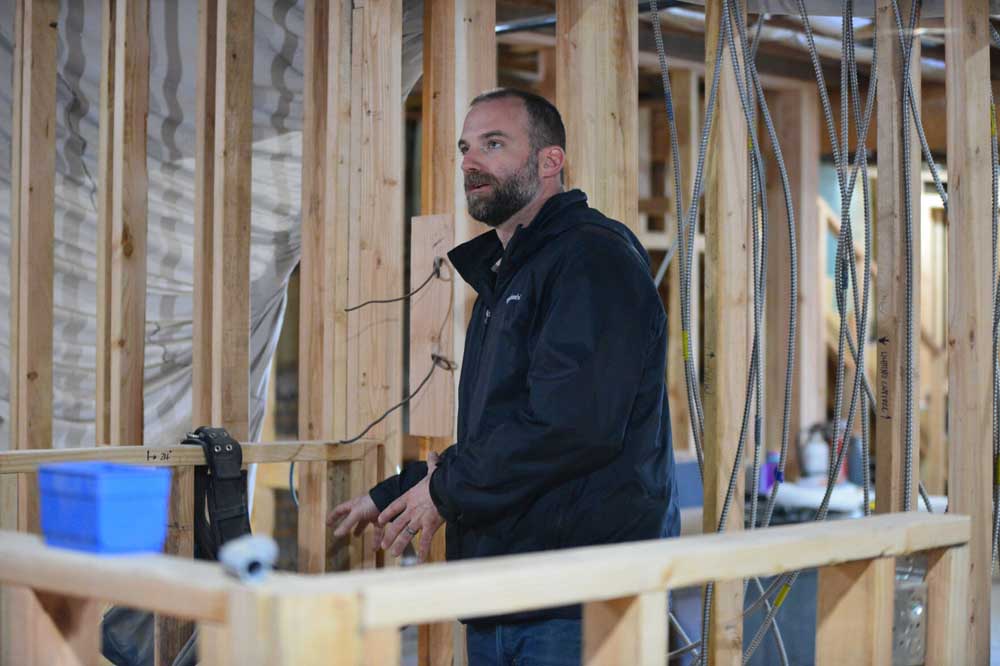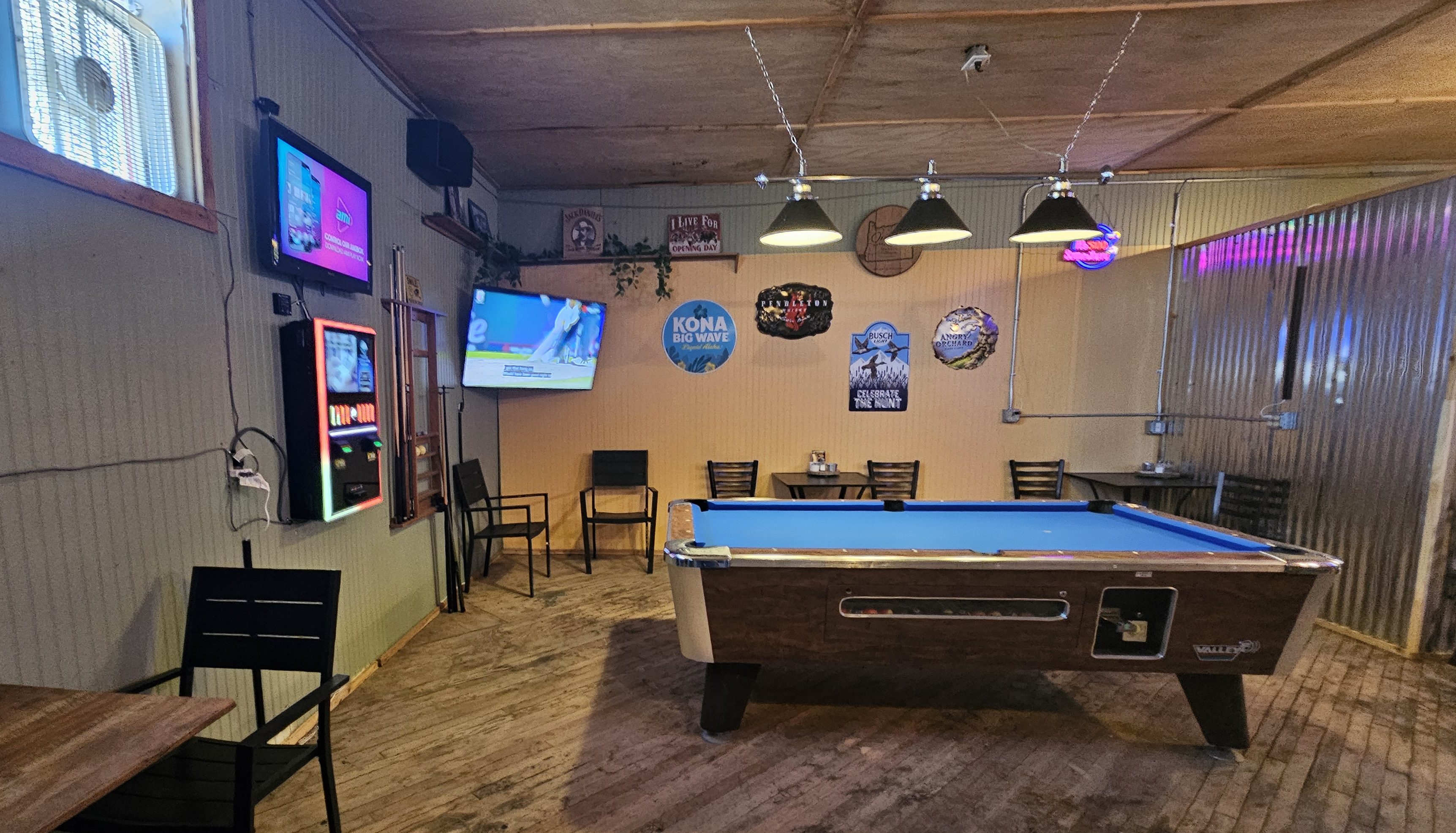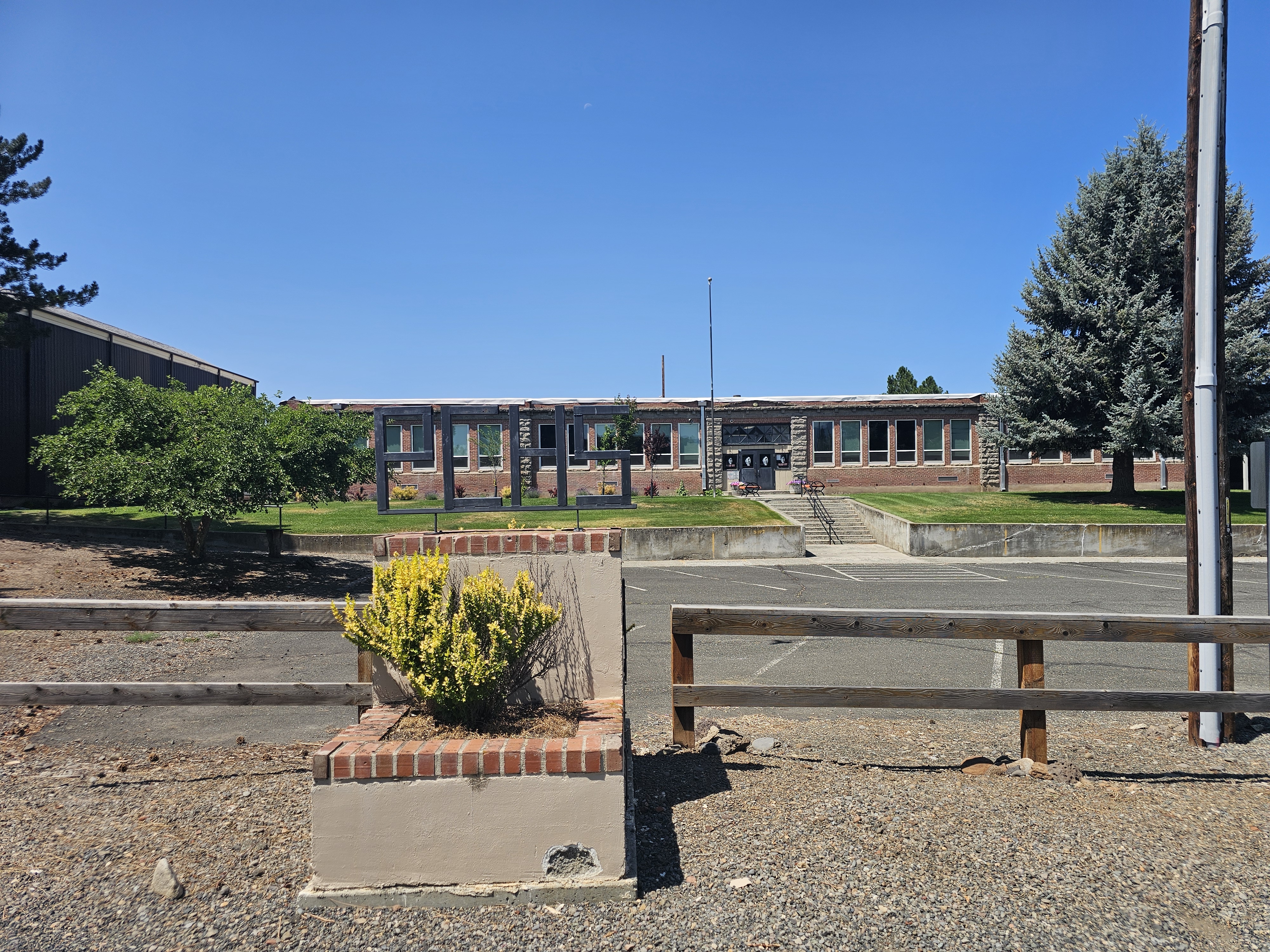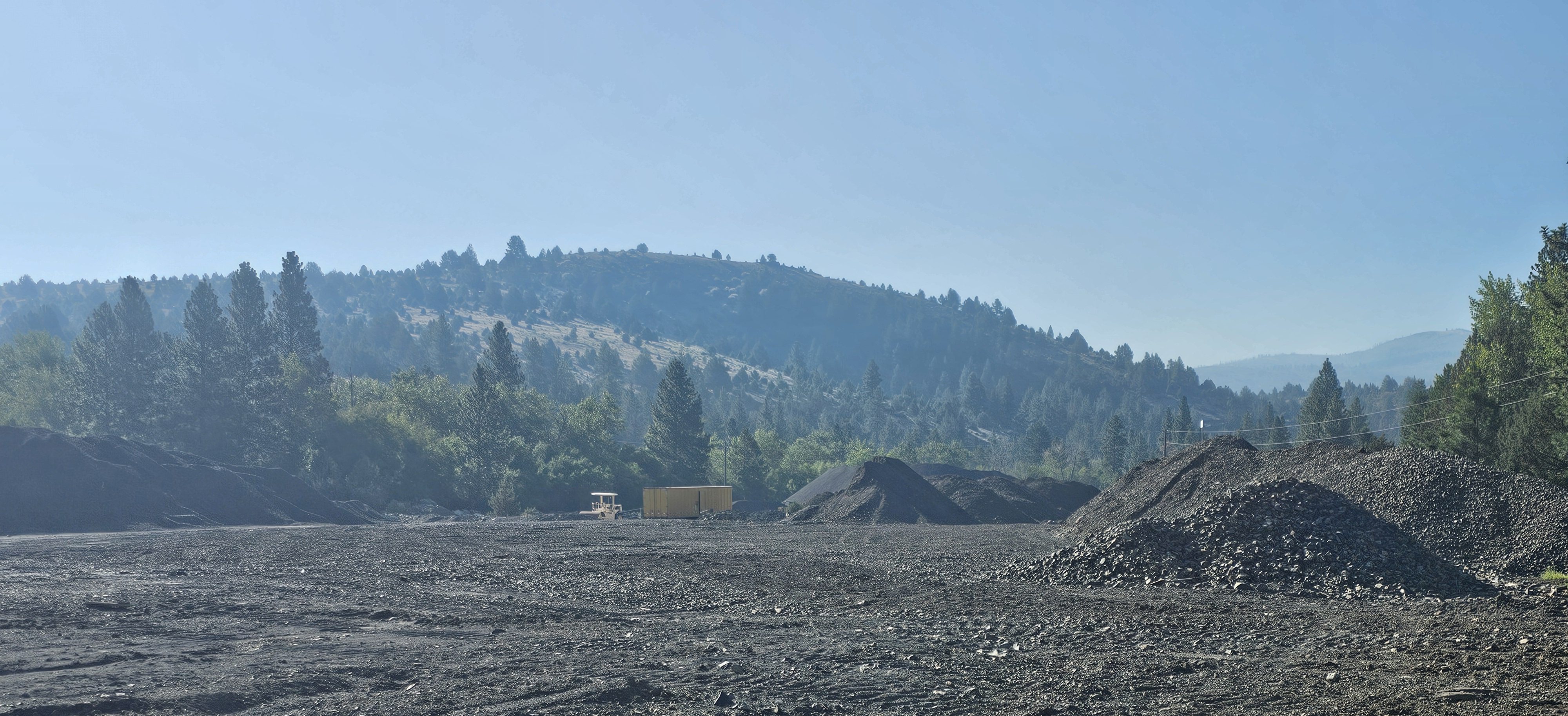Bidding for the final phase of Liberty Theatre restoration work to begin July 10
Published 11:00 am Saturday, July 13, 2024

- Ashley O’Toole, chair of the Liberty Theatre Foundation’s board, checks on the ongoing renovation of La Grande’s historic venue on March 7, 2022.
LA GRANDE — After more than a decade there is light at the end of the tunnel for the Liberty Theatre restoration project.
Trending
The Liberty Theatre Foundation recently secured the final grant funding necessary to take the project in downtown La Grande across the finish line, board Chairman Ashley O’Toole said. If all goes according to plan, the theater will be open in the spring of 2025.
“This is the final phase getting us to the grand opening,” O’Toole said.
The foundation received more than $585,000 through a grant from the U.S. Department of Commerce’s Economic Development Administration to complete the work, according to grant manager Nick Ducote. This federal grant required an in-kind match, which came through a combination of Eastern Oregon University donating chairs from the McKenzie Theater and previous work completed on the theater.
Trending
The Liberty Theatre will start soliciting bids from contractors to complete the work on Wednesday, July 10, O’Toole said. The bid will be open for six weeks and during this time contractors interested in submitting a proposal can tour the facility. Once a contract is signed, the contractors will have 210 days to complete the work.
Ducote is optimistic that contractors will be interested in bidding on the project.
“We think that it’s a good project and it’s well-funded,” he said.
Looking back
The Liberty Theatre Foundation first started the project in 2012, O’Toole said. After five years of planning and fundraising, demolition started in 2017 and restoration work began in 2019. The project was estimated to cost approximately $2.7 million, but funding ran out in 2022.
The coronavirus pandemic set the Liberty renovation project back considerably from a financial and timeline standpoint, O’Toole said. Before the pandemic, the project was fully funded and slated for completion by the end of 2020.
However, O’Toole said the pandemic stalled the completion of much of the restoration work. While supply chain issues made it more difficult to get the necessary supplies and materials, skyrocketing prices due to inflation hit the project hard.
For example, O’Toole said while budgeting for the project two-by-fours cost $2.95, but when it was time to buy them, the cost had risen to $9. These increases were seen across the board.
O’Toole said the final work will cost over $767,000. It includes the finishing touches, such as putting in the floor and wall coverings, installing the light fixtures, constructing the concession stand and finalizing the stage technology.
Modern technology
The 300-seat theater will feature modern technology, O’Toole said. From the beginning of the project the goal has been to create a theater space that can be used for a wide variety of programming.
“Lighting, sound and cinema will all be modern,” he said.
While the board will have oversight of the programming to ensure it aligns with the vision of the foundation, the day-to-day operation will be handled by Brent Smith with Union Dynamics LLC. Smith said the venue is best suited for film screenings, live music and smaller theater productions.
“The plan is to have the theater open all year,” he said.
Smith intends to have regularly scheduled film and music programming. He said he wants the Liberty Theatre to be a place where local artists can perform for the first time and plans to hold open-mic nights. The theater also will be a good venue for traveling musical acts.
Smith added the type of programming the theater puts on will be driven by what Union County residents want to see. The foundation also has partnerships with local organizations, O’Toole said, such as the Grand Ronde Symphony Orchestra and the Eastern Oregon Film Festival, which have committed to using the venue.
Balancing modern and historic
The project has blended historic restoration with modern standards, including Americans with Disabilities Act requirements, according to O’Toole. In some instances, these requirements have given the foundation more flexibility with the space.
For example, O’Toole explained the original theater did not really have a lobby — people would walk in and either head directly to the ground floor seating or take the stairs up to the balcony. However, ADA rules require an accessible first-floor bathroom. To meet this requirement, the first floor needed to be opened, which allowed the foundation to include a full lobby and concession stand.
“It’s been about finding the balance between an accurate historical restoration while still adhering to today’s building code and ADA rules,” O’Toole said.
The historic venue was built around 1910 and first named The Arcade. It became known as the Liberty Theatre in about 1930 after being remodeled. It then operated through 1959. The theater was closed from public view for about the next 50 years before the renovation project started.
Part of the reason the foundation has been able to do a historic restoration is it has been blessed with enough photos of the original venue, according to O’Toole. In addition, when the theater was closed and converted into a retail space, much of the upper level of the theater was preserved above the drop ceiling.









